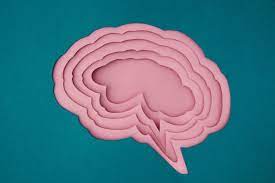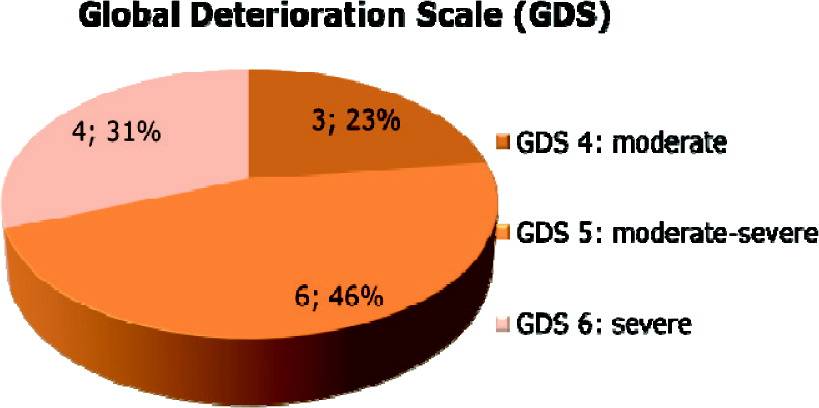The Global Deterioration Scale is one of the most widely used and accepted scales. That measure the severity of the cognitive decline. This article will cover the benefits and limitations of using this scale, as well as provide some examples of how it can be used in a clinical setting.
Contents
What is the Global Deterioration Scale?

The Global Deterioration Scale (GDS) is a standardized scale that rates the severity of a person’s cognitive decline. It was developed in the 1980s by Dr. Steven Hirsch and has since been widely used by clinicians to provide an objective measure of cognitive decline.
The GDS consists of seven stages, each with increasing levels of severity. Stage 1 is considered normal aging, while stage 7 represents severe dementia. The GDS can be used to track changes in a person’s cognition over time, and can also help diagnose dementia.
If you are concerned about your cognitive decline, or that of a loved one, talk to your doctor about whether the GDS may be right for you.
Why Would You Use The Global Deterioration Scale?

The GDS can be used to evaluate the severity of dementia. Patients who are already diagnosed with the condition. That’s why we recommend its use in physical therapy settings. In this setting, it can help medical professionals understand what stage a patient is in and what symptoms to expect from them.
The GDS is easy to use and can be administered by a trained professional or caregiver in just a few minutes. It is a valuable tool for detecting early signs of cognitive decline, which can allow for early intervention and treatment. It can also be used to track the progression of dementia over time.
The Global Deterioration Scale (GDS) is a seven-level scale that rates the severity of a person’s dementia symptoms.
What is the GDS Score?
The GDS score is a measure of cognitive decline. It is used to predict the risk of developing dementia. The scale ranges from 0 to 15, with higher scores indicating a more severe cognitive decline. The GDS is a reliable predictor of dementia and is used by many healthcare professionals to screen for the condition.
How to calculate the GDS score
The Global Deterioration Scale (GDS) is a seven-level scale that rates the severity of a person’s illness, from level 1 (no dementia) to level 7 (severe dementia).
To calculate a person’s GDS score, you will need to ask them a series of questions about their current functioning and abilities. The answers to these questions are then used to place the person in one of the seven levels of the GDS.
Level 1
No dementia. The person can function independently and has no memory problems.
Level 2
Very mild dementia. The person may have some minor memory problems but is still able to live independently.
Level 3
Mild dementia. The person has more significant memory problems and may need help with some activities of daily living, such as cooking or managing finances.
Level 4
Moderate dementia. The person has difficulty remembering recent events and recognizing familiar people or places. They may also need help with most activities of daily living.
Level 5
Moderately severe dementia. The person has impaired judgment and language skills and may be unable to recognize close family members. They will likely require constant supervision and assistance with all activities of daily living.
Level 6
Severe dementia. The person is severely impaired and may be unable to communicate or interact with others. They will need full-time care and assistance with all activities of daily living.
Level 7
Very severe dementia. The person is in a vegetative state and is completely dependent on others for their care.
To calculate a person’s GDS score, healthcare professionals use a standard questionnaire. The questionnaire asks about a person’s overall health, functional abilities, and cognitive abilities. Each answer is given a score, and the total score is used to determine the person’s GDS stage.
The GDS is a helpful tool for measuring the severity of dementia and tracking a person’s decline over time. However, it is important to remember that the GDS is not a diagnostic tool. A diagnosis of dementia can only be made by a qualified healthcare professional.
What Median Score on This Scale Means?
The Global Deterioration Scale (GDS) is a seven-point scale that rates the severity of a person’s cognitive decline.
The GDS has been widely used by researchers to study dementia and cognitive decline. It is considered one of the most accurate measures of cognitive decline. The scale ranges from 1 (no impairment) to 7 (severely impaired).
A person’s score on the GDS can give you an idea of how their cognition has changed over time and how severe their impairment is. scores of 1-3 are considered mild, 4-5 are moderate, and 6-7 are severe.
If you or someone you know is showing signs of cognitive decline, talk to a doctor about getting assessed with the GDS. It can help you or your loved one get the care and support they need.
What is the Global Deterioration Scale?
The Global Deterioration Scale (GDS) is a seven-point scale that rates the severity of a person’s cognitive decline. It was developed in the 1980s by Dr.Cecil Reisberg, a professor of psychiatry at Northwestern University.
The GDS has been widely used by researchers to study dementia and cognitive decline, and it is considered one of the most accurate measures of cognitive decline. The scale ranges from 1 (no impairment) to 7 (severely impaired).
A person’s score on the GDS can give you an idea of how their cognition has changed over time and how severe their impairment is. Scores:1-3 are considered mild,4-5 are moderate, and 6-7 are severe.
If you or someone you know is showing signs of cognitive decline, talk to a doctor about getting assessed with the GDS. It can help you or your loved one get the care and support they need.
Where GDS Score Used?
The Global Deterioration Scale (GDS) is a seven-level scale that rates the severity of a person’s illness, from normal and healthy to severely impaired. The GDS is often used by doctors and other healthcare professionals to determine the level of care a person needs.
The GDS can be used to help diagnose dementia, track the progress of the disease, and predict a person’s future needs. It can also be used to assess whether a person with dementia is eligible for certain clinical trials or treatments.
Benefits Of GDS
There are various benefits of GDS. They are:
The Global Deterioration Scale (GDS) is a clinical staging system for dementia that allows healthcare professionals to describe the course of the disease in terms of seven different stages.
Reliable
The GDS is a reliable and valid measure of cognitive decline in dementia and can be used to track changes in the severity of symptoms over time.
The GDS can be used to help diagnose dementia, predict how the disease will progress, and tonitor changes in cognition and function over time. Additionally, the GDS can be used to assess the efficacy of treatments for dementia.
Ease of Use
The GDS is easy to administer and can be completed in about 10 minutes. The scale does not require the use of any specialized equipment or training and can be administered by healthcare professionals with a variety of backgrounds.
Sensitivity
The GDS is highly sensitive to changes in cognitive function and can detect even small changes over time. This makes it an ideal tool for tracking the progression of dementia.
Simplicity
The GDS is a simple, straightforward measure of cognitive decline. It does not require the use of complex statistical methods and can be easily interpreted by healthcare professionals with a variety of backgrounds.
Validity
The GDS is a valid measure of cognitive decline in dementia and has predictive validity for the progression of the disease. Additionally, the GDS is correlated with other measures of cognitive declines, such as the Mini-Mental State Examination (MMSE).
The Global Deterioration Scale (GDS) is a clinical staging system for dementia that allows healthcare professionals to describe the course of the disease in terms of seven different stages.
Reliable
The GDS is a reliable and valid measure of cognitive decline in dementia. It can be used to track changes in the severity of symptoms over time. Additionally, the GDS can be used to assess the efficacy of treatments for dementia.
These are some benefits of GDS.
Limitations GDS
The Global Deterioration Scale (GDS) is a wide-ranging measure of cognitive decline. It has been widely used since then to assess cognitive decline in older adults.
However, the GDS has some limitations:
- First, it does not provide a precise diagnosis of dementia or any other specific cognitive impairment.
- Second, it is not always accurate in predicting how quickly an individual will decline.
- Finally, the GDS is heavily reliant on self-report, which can be affected by factors such as depression and motivation, and thus, these are some limitations and concerns of GDS.
Conclusion
The scale can be used to help plan for an individual’s care needs and to monitor their response to treatment. If you are concerned about your cognitive decline or that of a loved one, talk to your doctor about whether the Global Deterioration Scale could be helpful for you.
Physical Therapy help patients recover from pain. If you’re experiencing Back pain, Shoulder pain, Knee pain, Neck pain, Elbow pain, Hip pain, or Arthritis pain, a physical therapist at MantraCare can help: Book a physiotherapy session.


